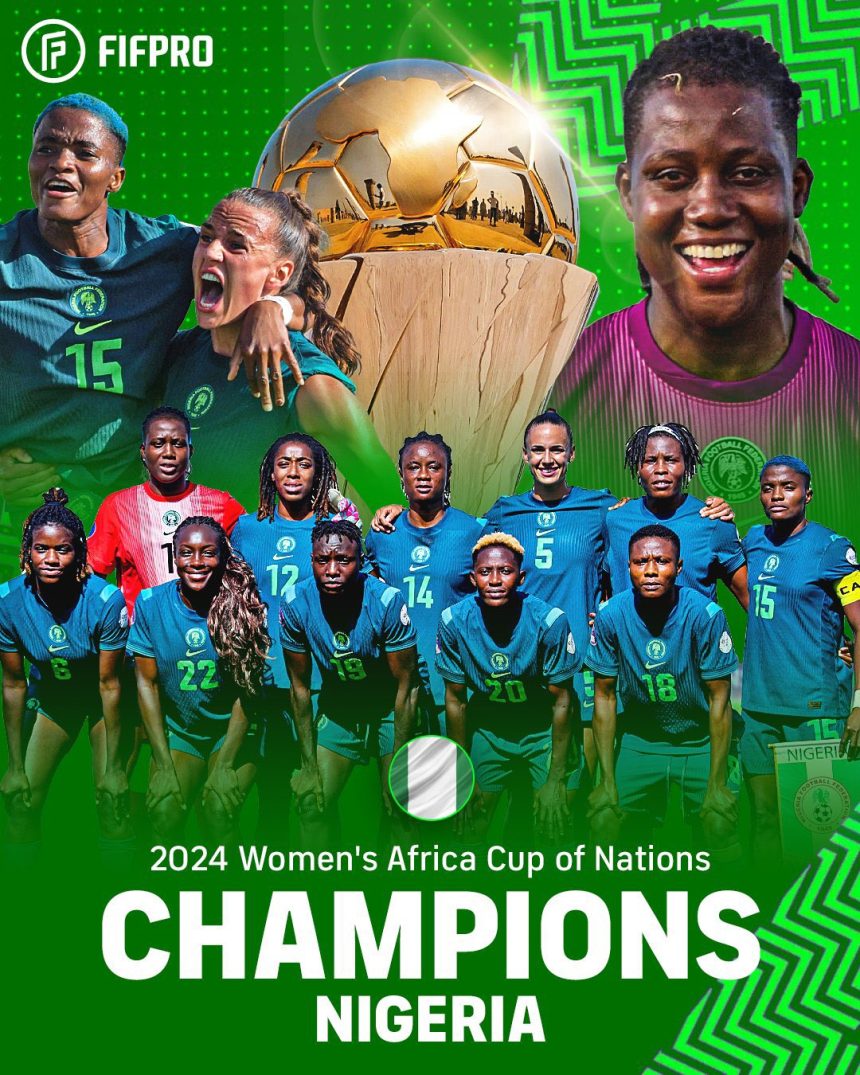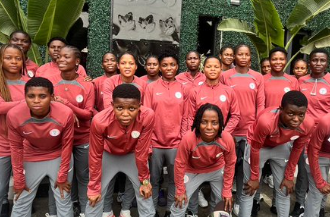The rain-slicked pitch of Rabat’s Olympic Stadium mirrored the tears of a nation on edge. On July 26, 2025, Nigeria’s Super Falcons stood at the precipice of disaster. Trailing Morocco 2-0 before 45,000 roaring home supporters in the Women’s Africa Cup of Nations final, the nine-time champions faced not just a football match, but a trial by fire. Ghizlane Chebbak’s clinical finish in the 12th minute had punished Nigerian hesitation, and Sanaâ Mssoudy’s thunderous volley twelve minutes later sent waves of euphoria through the stands. History itself scowled at the Falcons, no team had ever overcome a two-goal deficit in a WAFCON final. Their “Mission X,” the quest for an unprecedented 10th continental crown, seemed destined to drown in Moroccan ecstasy.
Yet within the locker room at halftime, a transformation brewed. Coach Justin Madugu, facing the abyss, drew not on panic but on tactical genius. His adjustments unfolded like a masterstroke: fullbacks pushed high to fracture Morocco’s compact lines, captain Rasheedat Ajibade liberated into a false-nine role to sow chaos, and the introduction of 19-year-old phenom Flourish Ijamilusi to dominate the skies. The second half became a symphony of Nigerian resurgence. The relentless press, orchestrated by Jennifer Echegini, forced errors where composure once reigned. In the 64th minute, justice arrived via VAR, a confirmed handball granting Esther Okoronkwo the penalty spot. Her conversion, executed with glacial calm, was the spark. Just seven minutes later, destiny wore green and white as Ijamilusi soared, meeting Ajibade’s cross with a header that ignited pandemonium in the Nigerian end. The impossible suddenly pulsed with life.
As the clock bled towards extra time, Rabat held its breath. Then, in the 88th minute, eternity unfolded. Ajibade, the warrior-heart of this team, intercepted a clearance, driving forward with purpose. Her pass found Echegini, whose first touch danced away from two defenders. The second sent the ball arcing, beautiful and cruel, beyond the goalkeeper’s despairing reach. Silence, profound and deafening, swallowed the stadium broken only by the primal cries of Nigeria’s bench collapsing in disbelief and joy. Echegini’s strike wasn’t just a goal; it was the coronation of the greatest comeback in WAFCON history, a perfect embodiment of the Falcons’ mantra: “Pressure is a privilege.”
Lifting the trophy under a cascade of fireworks, Ajibade consecrated more than a victory. She cemented a dynasty: a 10th title dwarfing all others, a 19-match unbeaten streak in WAFCON, and automatic passage to the 2026 World Cup secured. This triumph validated Madugu’s vision and showcased Nigeria’s seamless generational shift, the enduring steel of Onome Ebi and Asisat Oshoala blending with the fearless brilliance of Ijamilusi and Echegini.
President Bola Tinubu’s words resonated across a nation erupting in catharsis: “Coming from behind to beat a spirited Moroccan side before a passionate home crowd exemplifies the Nigerian spirit.” From the bustling markets of Lagos to the quiet streets of Enugu, the victory was a shared heartbeat. Midfielder Toni Payne captured its essence: “We play for the trader in Lagos, the student in Enugu, the mechanic in Kaduna. This trophy is theirs.” In a landscape often fractured by challenges, the Falcons wove a narrative of unity and indomitable will.
Nigeria’s 10th WAFCON crown stands not merely as a sporting achievement, but as a monument to the national character. When history and a hostile crowd conspired against them, the Falcons authored a manifesto of resilience proving that skill fused with unconquerable spirit can scale any mountain. They didn’t just win a tournament; they reminded the world that some legends are forged in the white-hot crucible of impossibility, and the Nigerian spirit, like the Falcon’s flight, remains forever unbroken.









